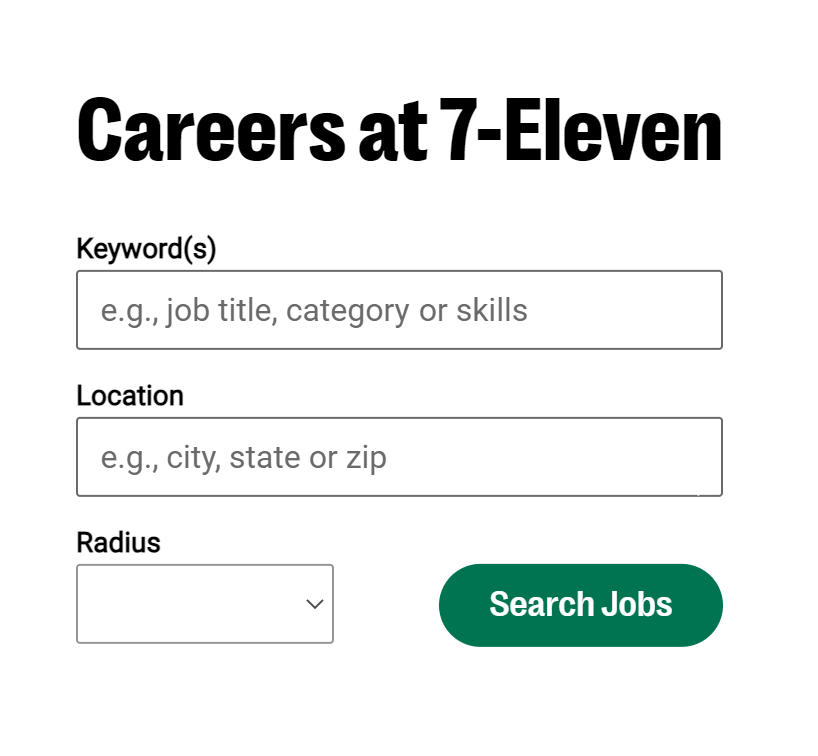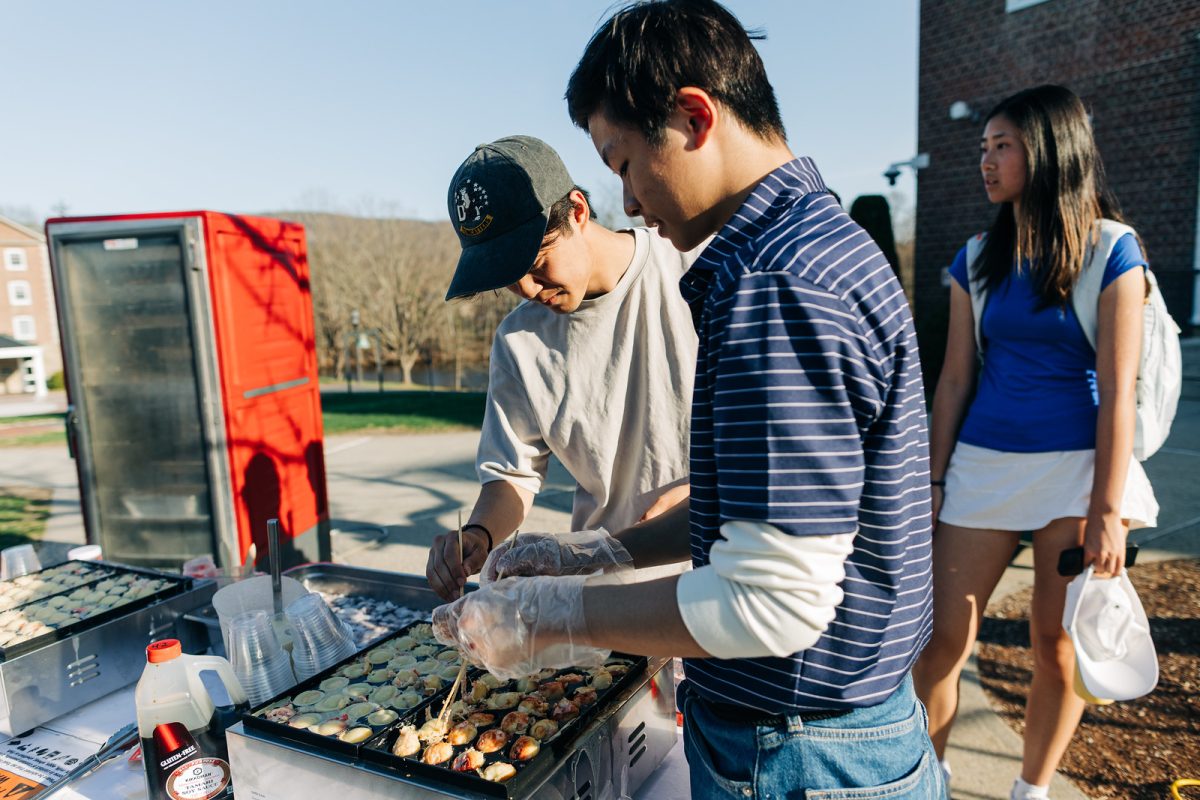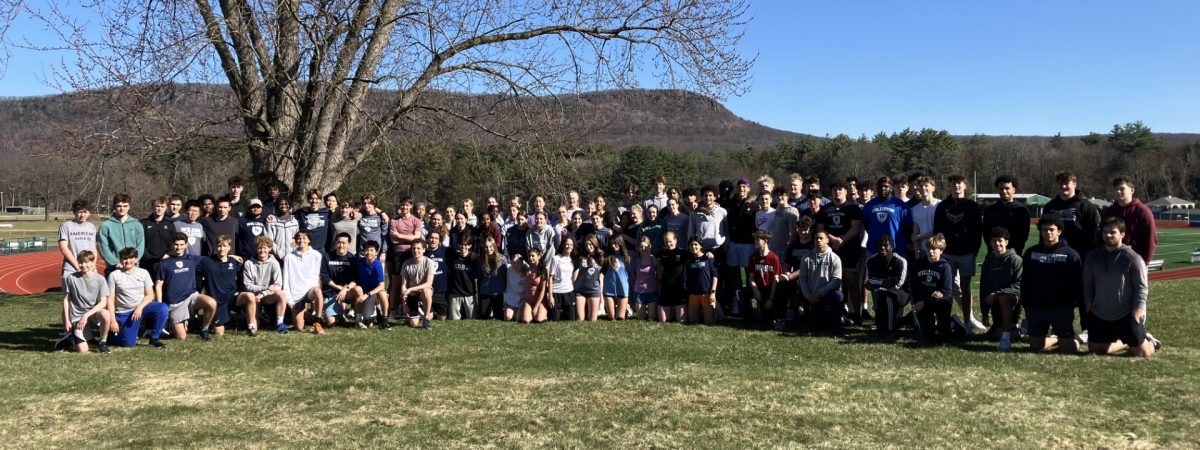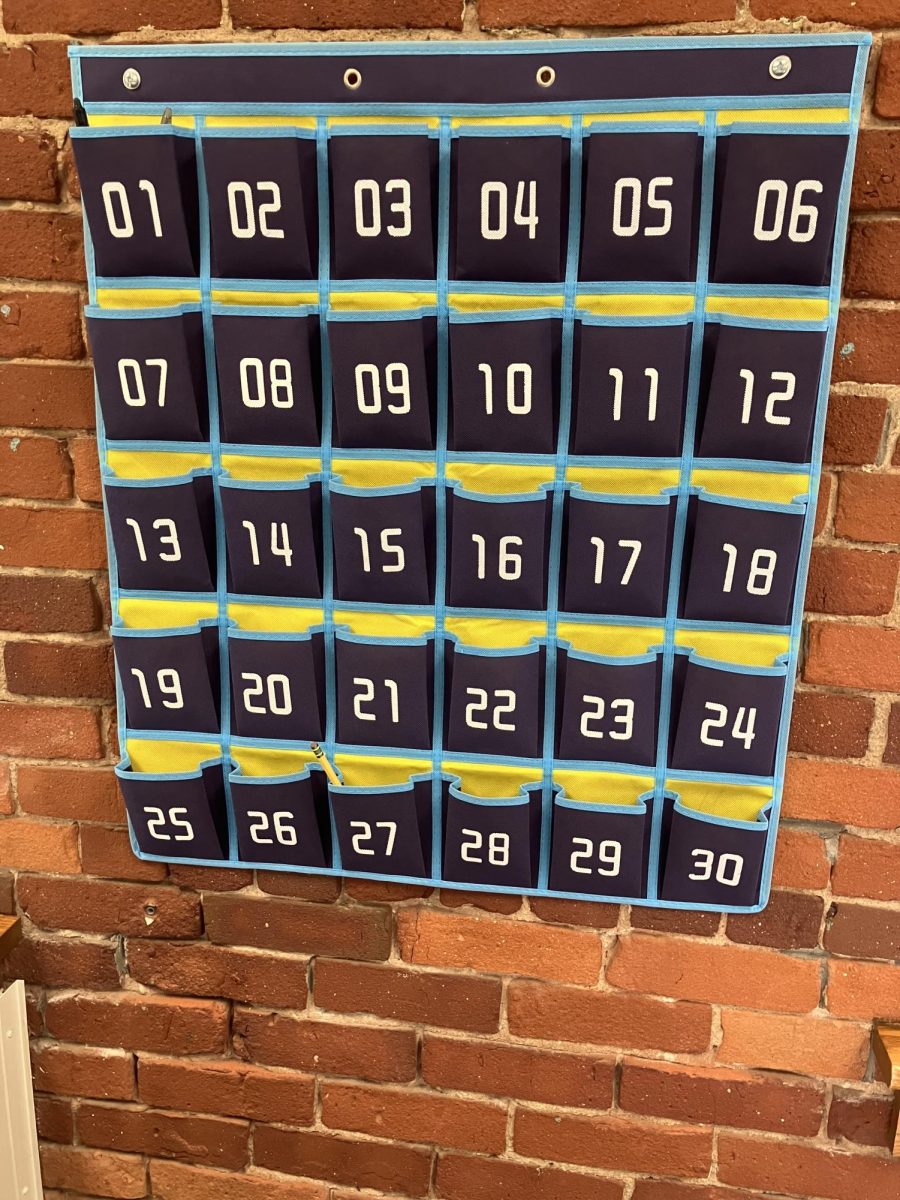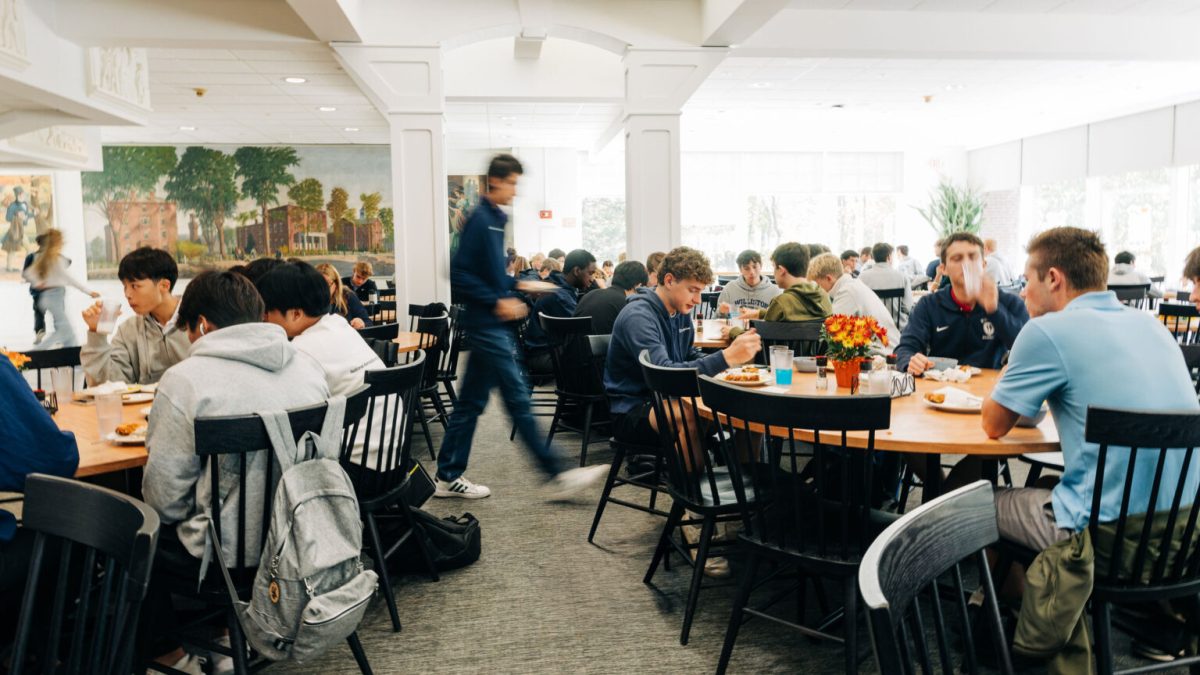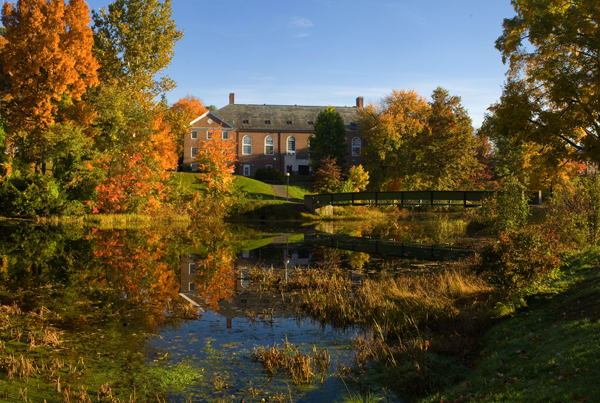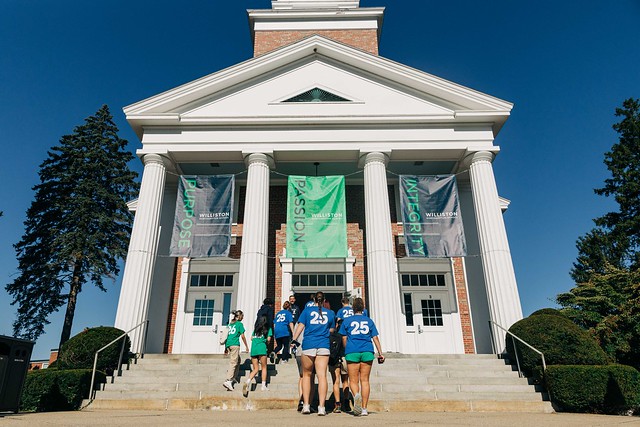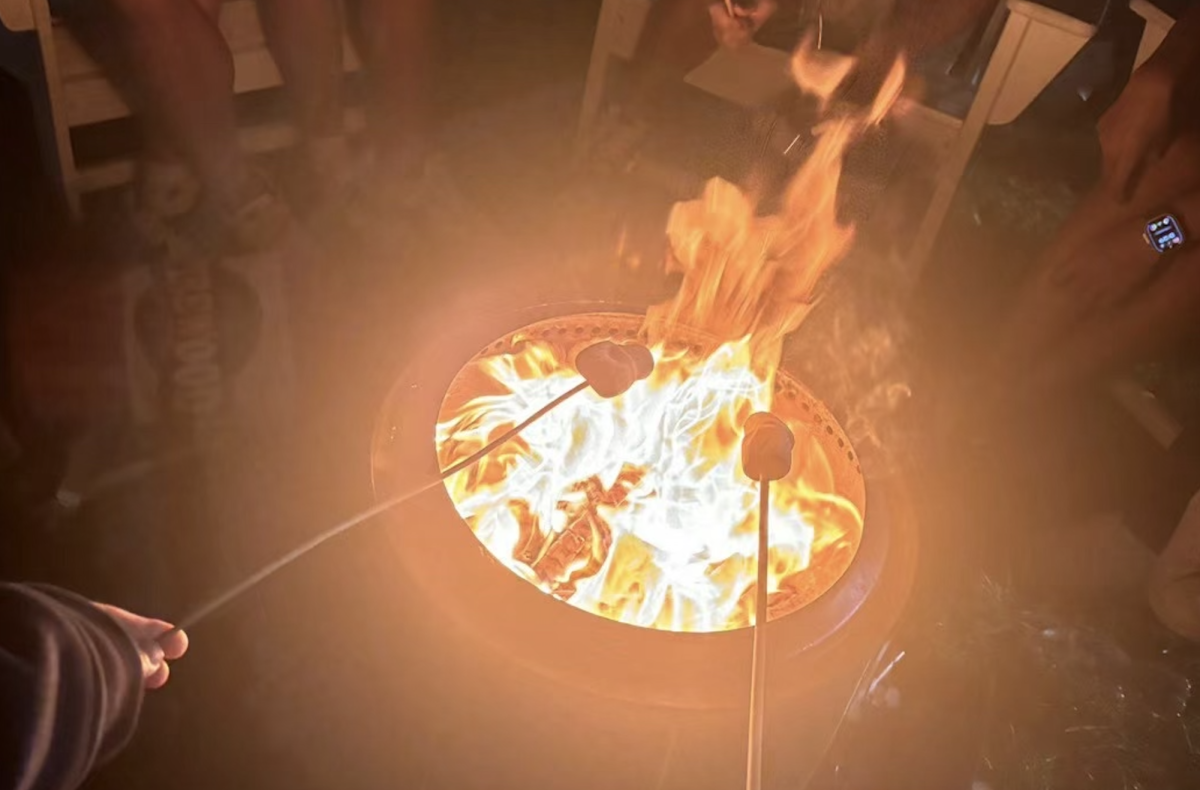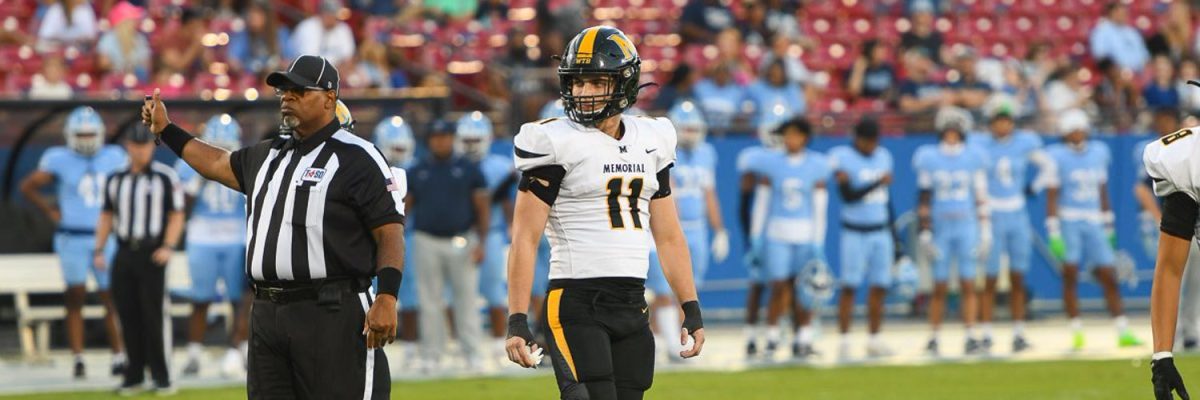[Editor’s Note: This is an opinion piece, and does not necessarily reflect the views of the entire Willistonian staff.]
If you are getting a donut at Dunkin’, a CELCIUS at 7-Eleven, or snacks from Family Dollar, you see Williston students everywhere. Many without a word dash in and out of stores, buying and leaving, entering the “real” world of Easthampton and then quickly retreating back to campus.
Recently, as I have walked throughout town talking with many employees at our favorite stores, I have heard horror stories of Williston students coming in and trashing the store, leaving it for the staff to clean up: hoards of students rushing into 7-Eleven and dropping Slurpees all over the counter, students leaving plates on tables at Tandem, and people stealing online orders at Dunkin’.
From a young age, we’re all taught the golden rule of treating people how you want to be treated, but it seems that with age that idea, or even just basic morals, starts to fade. It has never been right to steal from or disrespect someone, but I have seen many instances of it occurring throughout our town.
I asked the workers at 7-Eleven, Family Dollar, and Pride/Dunkin’, to comment on record, but all said they were unavailable under their contract.
Max Elkin, a junior boarder and avid Pride/Dunkin’ customer, said many Williston students would benefit from a either an on-campus or an job, and that the responsibility would not just allow them to contribute to the campus and town they call home, but to understand and empathize what it’s like to work a long retail shift.
“[Many Williston students] have no idea what it means to work in retail,” he said. “If Williston had an afternoon program where students could work at the Stu-Bop or in town, similar to NMH,” added Max, it might help instill a sense of their place and role in the greater world.
The program he is speaking about Workjob, a program, similar to a college work-study, in which every NMH student is responsible for working a three-hour-per-week job, some of which include helping in the dining hall or the campus barns.
Julian Bartels-Theil, a junior at Northfield Mount Hermon, said the Workjob program at NMH has helped him build connections and learn what it means to work a difficult job.
“Every day I got into the kitchen and chop for hours,” he explained. “I’ve got to meet many people and learn so many new things that I will use in the future. I believe that everywhere should have this opportunity for students.”
Williston could benefit in many ways from a similar program, whether it be for kids to learn about what it means to work a long shift, or learn new skills for their life after Williston.
Williston is not lacking for places where students could work, either: the Stu-Bop, dining commons, library, the Cage, along with the many shops in town–all are close by and would fit the bill.
Max said if students were to do the jobs they see others doing around town, they would gain a greater perspective on how people live, and, in turn, reconsider how they act..
“I really think it would benefit a lot of students with what they know how do, to but also how to grow and understand workers and what they have to go through,” said Max.
Beyond just the learning a skill, a work program also benefits the school financially; the school would now have students putting in some hours, which could potentially lower the operating costs of the school.



